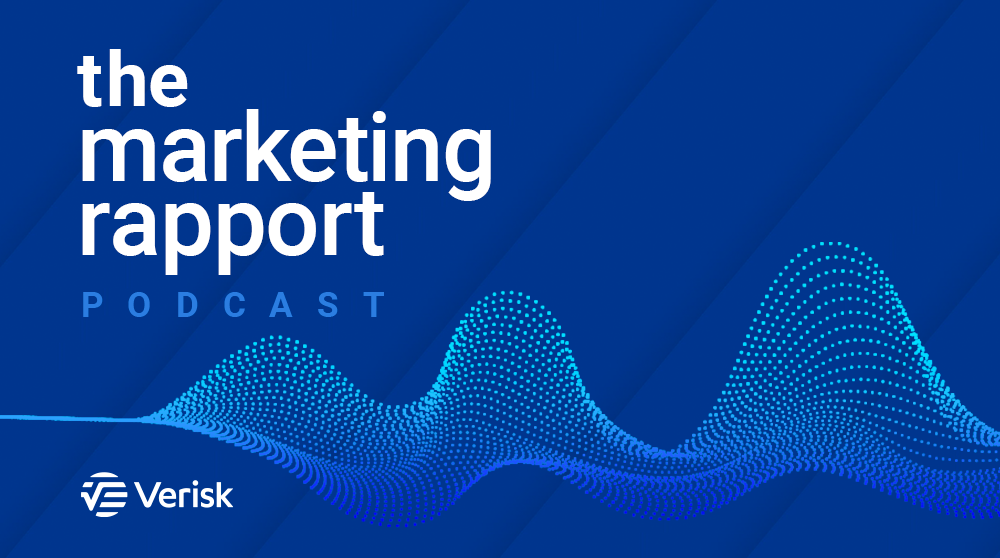Building Scalable Data Acquisition Strategies from the Co-Founder and CTO of Explorium, Mr. Omer Har
Finding the right data and integrating it into your decision-making is crucial for any enterprise to create a competitive advantage
“Money makes the world go round” is a verse from a popular song that most of us have heard at least once. However, even if we agree with that, there is one thing perhaps more powerful than money: information. If you keep in mind what we have gone through in the past fifteen months, from a business perspective, it is more than clear how relying on accurate and reliable data has saved many companies.
In this episode of Infutor’s Identity Revolution podcast, Omer Har, the co-founder and CTO of Explorium, joins our host, Cory Davis, to discuss the importance of external data resources. Prior to launching Explorium, Omer worked as a developer in Microsoft. Once he finished his third degree, Omer transitioned to Microsoft Research at Cambridge and worked on optimization and data science problems.
Omer and Cory look back on the pandemic and talk about the changes Coronavirus brought to the business world. Companies had to acknowledge the power of external data sources because those who recognized relevant data and knew how to use them survived; some even prospered.
The data science space is constantly evolving, and it will need to continue to change with or without a global pandemic to accelerate it. It’s up to businesses to make the most out of it. If you lack hands-on analytics experience, companies like Explorium have your back.
To learn more about how Explorium can help your team implement a data acquisition strategy and what the future holds for the data marketplace, keep reading or tune in to the latest episode of the Identity Revolution podcast.
Explorium Extends Automatic Access to Thousands of Different Data Sources
As Omer explains, most data science teams only have access to first-party data. But also, the information they have access to is, as he describes it, “soiled.” Explorium brings a wide variety of external data sources to its clients to improve the predictiveness of models built with limited signals. “We discovered, in the last four years working with our customers, that it’s difficult to onboard a new data source. It usually takes a company between three or four months to onboard even a single data source. So what we’re about is giving them automatic access to thousands of different data sources but also recommending which data will be relevant to their problem.”
What differentiates Explorium from other similar platforms is the catalog they’ve built in the past four years. “You can find any data in that catalog. You can find open data we downloaded and structured; you can find premium data that we bought for our customers; you can find a product we sometimes call ‘partnership data.’ We have a network of partners we’re working with, and we share data between us, and we also have proprietary data sources that regenerate themselves. Those data sources can help in a wide variety of use cases anywhere from AML (anti-money laundering) into fraud, risk, both for consumers and businesses and then lead scoring for businesses and consumers, demand forecasting and so on.”
The Pandemic Caused Changes in Business Patterns
Since the outbreak of COVID-19, many businesses have found themselves at crossroads. It was evident that relying on historical or first-party data is insufficient. Instead, companies acknowledged the power of external data sources and embraced them as allies in what we could only describe as the battle for survival. “Many customers and companies needed external data sources to identify or understand the world around them,” says Omer.
The Importance of Data Acquisition Strategies
A data acquisition strategy is beneficial for many reasons. First and foremost, it is a practice that will differentiate you from your competitors. “The ability to find the right data and try to integrate it into your decision-making is crucial for any enterprise to create a competitive advantage.”
Omer and Cory agree that data acquisition strategies may look intimidating, especially if you are unfamiliar with the field. Luckily, Explorium can help you out. “We can enrich a company, we can also enrich places. We can enrich dates with weather data and events data. To get all of that quickly can be a major competitive advantage over other companies.”
The Data Science Market: Current State and Predictions for the Future
Data science is constantly evolving and becoming more popular across a variety of industries and use cases. “What we’ve seen in the AI industry in the last five to six years, data science is recognized as a discipline people want to use. So many tools went in, and now, if you’re a data scientist, I hope you’re using tools to help you build better models, to get better data, to validate your models, to validate the results of your model, and so on.”
Omer also believes it will be unreasonable to write codes for everything. “No data scientist today will code up logistic regression training or aggressive linear training. That will also happen in two or three years; nobody will write the wrong code. We’re going to use AutoML and cloud providers to do that.”
However, there’s one thing he sees as a challenge, which brings us back to the question: how do you find the right data? “It’s still an open problem, which Explorium tackles. I believe, and I’m doing my best to do that, that every enterprise and every company will use a platform such as Explorium to access external data sources and make sure they have the right data to solve their problem.”
Note: This is based on an episode of Identity Revolution, Infutor’s podcast featuring data-driven experts discussing all things marketing, analytics and identity. We take a deep dive into industry trends, strategies, and the future of data technology.






 Your Privacy Choices for Platform Services | Data Services
Your Privacy Choices for Platform Services | Data Services